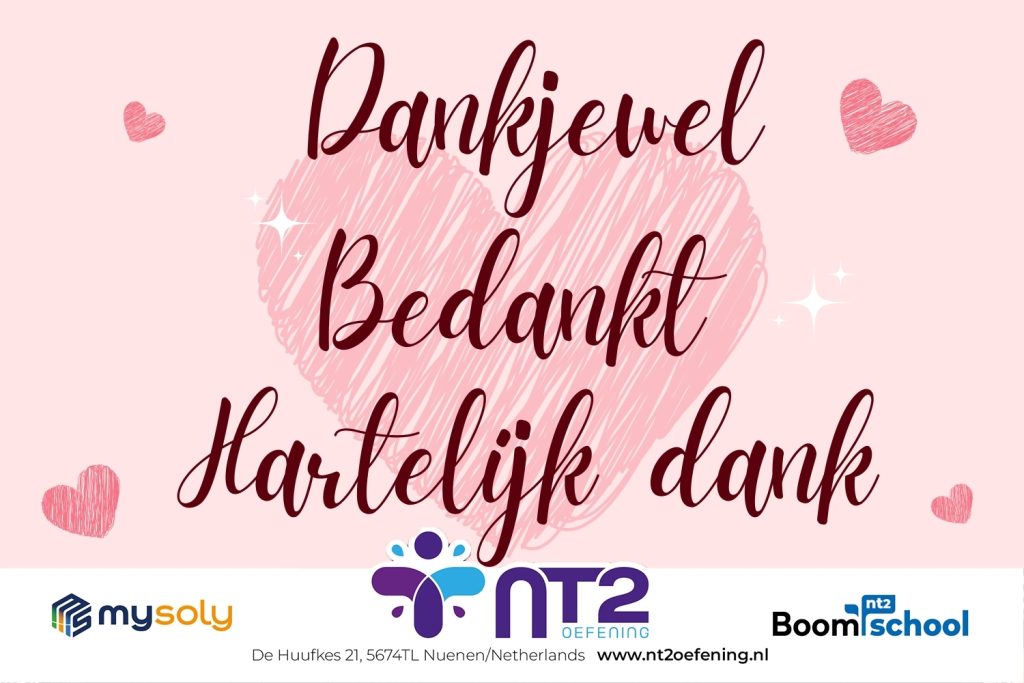When visiting the Netherlands or interacting with Dutch speakers, understanding how to say thank you in Dutch is an essential aspect of building a connection and showing respect. While Dutch may seem intimidating at first, mastering how to say thank you in Dutch is quite simple. By learning a few variations of gratitude, you’ll not only make a lasting impression on locals but also demonstrate your appreciation for their language and culture. In this article, we will explore 10 powerful ways to express your thanks, helping you impress locals and navigate conversations with ease.
How to Say Thank You in Dutch: The Classic “Dank je”
One of the most common ways to say “thank you” in Dutch is by using “Dank je.” This informal expression is suitable for casual interactions, such as thanking a friend or a colleague. It’s short, simple, and easy to remember. If you want to make the expression a bit more polite, you can add “wel,” making it “Dank je wel,” which translates to “thank you very much.”
Example:
– English: Thank you for the coffee.
– Dutch: Dank je voor de koffie.
How to Say Thank You in Dutch: The Formal “Dank u”
For more formal occasions, such as speaking to someone older, a stranger, or in a professional setting, the polite version “Dank u” is preferred. The difference lies in the pronoun: “je” is informal, while “u” is the formal pronoun used to show respect.
Adding “wel” makes it “Dank u wel,” a more complete and polite way of saying thank you. This form is widely used in business settings or when speaking to people you don’t know well.
Example:
– English: Thank you for your assistance.
– Dutch: Dank u voor uw hulp.
How to Say Thank You in Dutch: “Bedankt” for General Use
Another way to say thank you in Dutch is “Bedankt.” This word works well in both formal and informal contexts, making it a versatile option. It’s akin to the English “thanks” and can be used in almost any situation.
If you want to make it more polite, you can add “heel erg” or “hartelijk” in front of it, which means “very much” or “heartily,” respectively.
Example:
– English: Thanks a lot for your help.
– Dutch: Heel erg bedankt voor je hulp.
How to Say Thank You in Dutch: “Hartelijk Dank” for Sincere Gratitude
When you want to express deep or sincere gratitude, “Hartelijk dank” is the perfect phrase. It translates to “heartfelt thanks” and is appropriate when you’re genuinely appreciative of someone’s actions. This phrase is often used when someone has gone out of their way to assist you or when you’re truly moved by their gesture.
Example:
– English: Heartfelt thanks for the invitation.
– Dutch: Hartelijk dank voor de uitnodiging.
How to Say Thank You in Dutch: Expressing Gratitude with “Veel Dank”
“Veel dank” translates to “many thanks” and is used in situations where you want to emphasize your appreciation. It’s a bit more formal than “Bedankt” but less so than “Hartelijk dank.” This phrase is ideal for both formal and semi-formal conversations, especially when you’re grateful for someone’s efforts or generosity.
Example:
– English: Many thanks for your quick response.
– Dutch: Veel dank voor uw snelle reactie.
How to Say Thank You in Dutch: “Ik waardeer het” for Deep Appreciation
If you want to show deeper appreciation, “Ik waardeer het” (I appreciate it) is a great way to express thanks in Dutch. This phrase is especially useful when someone has done something meaningful or significant for you. It goes beyond a simple thank you, showing that you truly value the person’s effort.
Example:
– English: I appreciate your help with the project.
– Dutch: Ik waardeer het dat je me hebt geholpen met het project.
How to Say Thank You in Dutch: “Dank je duizendmaal” for Extreme Gratitude
When you want to express extreme gratitude, “Dank je duizendmaal” is the Dutch equivalent of saying “a thousand thanks.” It’s a bit more dramatic and less commonly used in everyday conversations, but it can be quite effective when someone has done something extraordinary for you.
Example:
– English: A thousand thanks for saving the day!
– Dutch: Dank je duizendmaal voor het redden van de dag!
How to Say Thank You in Dutch: “Dank je van harte” for Heartfelt Thanks
Similar to “Hartelijk dank,” “Dank je van harte” translates to “thank you from the heart” and is used to express sincere gratitude. This phrase is perfect for situations where you’re emotionally touched by someone’s kindness or assistance. It’s a more personal way to show appreciation.
Example:
– English: Thank you from the heart for your kind words.
– Dutch: Dank je van harte voor je vriendelijke woorden.
How to Say Thank You in Dutch: “Ik ben je dankbaar” for Showing Gratefulness
“Ik ben je dankbaar” means “I am grateful to you” and is another powerful way to show deep appreciation. It’s a phrase that is used when you’re truly thankful for someone’s actions or support. This is a strong way to communicate genuine gratitude, especially when someone has had a positive impact on your life.
Example:
– English: I am grateful to you for all your help.
– Dutch: Ik ben je dankbaar voor al je hulp.
How to Say Thank You in Dutch: “Dank voor alles” for General Gratitude
If someone has done a lot for you and you want to express general gratitude, “Dank voor alles” is the phrase to use. It means “thank you for everything” and is typically used when thanking someone for a series of actions or ongoing support.
Example:
– English: Thank you for everything you’ve done for me.
– Dutch: Dank voor alles wat je voor me hebt gedaan.
Conclusion
Learning how to say thank you in Dutch is not only polite but also a powerful way to connect with locals and show respect for their culture. From simple, everyday expressions like “Dank je” to more formal and heartfelt phrases like “Hartelijk dank,” mastering these 10 ways to say thank you will help you leave a positive impression. Whether you’re interacting with friends, colleagues, or strangers, knowing how to express gratitude in Dutch will enhance your experience and relationships.
FAQs
Q1. What is the most common way to say thank you in Dutch?
The most common way to say thank you in Dutch is “Dank je” or “Dank je wel,” which are informal expressions used in everyday conversations.
Q2. How do I say thank you in Dutch formally?
To say thank you formally in Dutch, you can use “Dank u” or “Dank u wel.” These expressions are polite and suitable for professional or formal settings.
Q3. What does “Bedankt” mean in Dutch?
“Bedankt” means “thanks” in Dutch and is used in both formal and informal contexts. It’s a versatile and widely used expression.
Q4. Can I use “Hartelijk dank” in everyday conversations?
“Hartelijk dank” is a more formal or sincere way to say thank you, often reserved for situations where you’re genuinely moved by someone’s gesture or help. While you can use it in everyday conversations, it’s more common in formal settings.
Q5. How do you say thank you very much in Dutch?
To say “thank you very much” in Dutch, you can use “Dank je wel” or “Heel erg bedankt.” Both expressions convey a stronger sense of gratitude.
Also read: Gourmetten Magic: 10 Unforgettable Dishes You Need to Try Tonight





